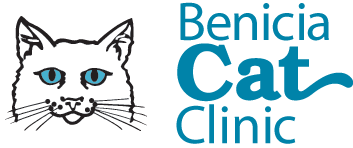Educational Articles
-
Benzoyl peroxide topical products (2%, 5%) are used in cats and dogs to treat bacterial infections of the skin. They are available as over-the-counter veterinary products in the form of shampoos, gels, and cream rinses.
-
Betamethasone + gentamicin topical, also known as gentamicin/betamethasone topical (brand names GenOne Otic, Betagen, Vet Beta-gen, Gentacalm), is a combination antibiotic and steroid used to treat superficial skin infections and ear infections. It is labeled for use in cats and dogs to treat infections of the anal glands, ears, and skin. This medication comes in liquid drop solution, spray, and ointment forms. Avoid use in pets with ruptured ear drums.
-
Betaxolol ophthalmic is a topical eye medication prescribed off-label in veterinary medicine to treat glaucoma in dogs, cats, and horses. It comes as a liquid eye drop to be administered on the surface of the eye.
-
Bethanechol chloride is given by mouth or injection and is used off label to increase urinary or intestinal movement/activity. Give this medication as directed by your veterinarian. Common side effects include vomiting, diarrhea, drooling, and lack of appetite. Do not use in pets that are allergic to it, or have urinary obstruction, stomach ulcers, gastrointestinal obstructions, intestinal inflammation, or recent intestinal, stomach, or bladder surgery. If a negative reaction occurs, please call your veterinary office.
-
Bexagliflozin (brand name Bexacat®, Brenzavvy®) is an oral glycemic control medication used in cats with diabetes mellitus. It is used to lower blood sugar levels in cats with diabetes mellitus not previously treated with insulin. Bexagliflozin comes in tablet form.
-
Bilberry is an over the counter supplement given by mouth, and is used off label to treat conditions of the eyes, heart and blood vessels, diabetes, and tumors. Give as directed by your veterinarian. There are no known side effects, but information is limited. There are no known contraindications. Certain medications should be used with caution in combination with bilberry. If a negative reaction occurs, please call your veterinary office.
-
Bile acids are compounds that are made in the liver and stored in the gall bladder and help with digestion of foods. The bile acid test is a very useful test that helps to determine if the liver is working properly. An abnormal bile acid test result indicates there is a problem in the liver, but it does not provide information about the cause, severity, or reversibility of the problem. Further testing is required to investigate the problem.
-
Biological response modifiers (BRMs) are naturally occurring substances that are used to treat diseases, infections, or chronic itchiness or pain, by affecting the immune system and how it works. They are mostly used to treat some cancers, immune-mediated diseases, and infections. Most BRMs are administered in the hospital under veterinary supervision. Side effects vary but may include fever, stomach upset, tiredness, or allergic reactions.
-
Bismuth compounds are given by mouth and are used on and off label to treat diarrhea and upset stomach. Give as directed by your veterinarian. The most common side effects include discolored stools and constipation. Do not use in pets that are allergic to it or other NSAIDs, or in pets that have a stomach or intestinal ulcer. If a negative reaction occurs, please call your veterinary office.
-
Green and black tea is given by mouth, over the counter, and is used off label to treat cancers and inflammation. Give as directed by your veterinarian. The most common side effects of caffeinated green/black tea include nervousness, sleeplessness, increased heart rate, and anxiety. Based on human studies, green and black tea should be used cautiously in pets that have kidney disease, stomach or intestinal ulcers, heart disease, insomnia, glaucoma, or high blood pressure. If a negative reaction occurs, please call your veterinary office.

